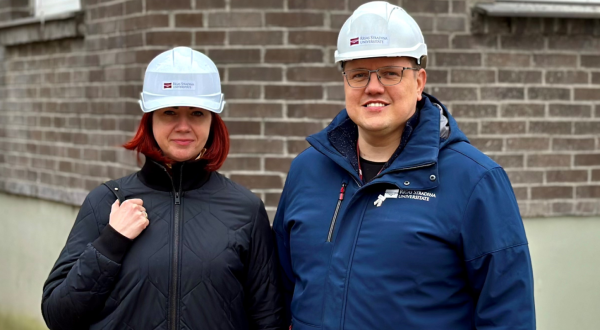Plan your time with recommendations from the RSU career centre
Pace of life, responsibilities, increasing demands, competition, and other factors lead us to the question of how to best manage our time.

To help you not to get distracted by everyday tasks and not burn out trying to do everything at once, specialists from the Rīga Stradiņš University (RSU) Career Centre have come up with a list of recommendations. These can be useful for students, lecturers, and other university employees when planning their time.
Effective time management strategies help us structure and plan tasks and responsibilities, meet deadlines, and give us a sense of stability and control. A lack of these can lead to stress and tension.
Effective time management can contribute to a sense of efficiency and balance between different areas of life. In the whirlwind of daily responsibilities and events, it is useful to remind ourselves that consciously scheduling time for relaxation, and self-care is just as important as finding time to work.
Tips for efficient time management
- To start with, it is advisable to prioritise the work you need to do. You can give each task a number on a 10-point scale, where 1 is unimportant and 10 is urgent.
Start with the tasks that have the highest priority. - Plan your time and consider how much time a given task will take. If you have difficulty estimating how much time something might take, it is useful to remember how long it took to complete a similar task. It is useful to plan for more time than initially seems necessary. People tend to feel inefficient if they cannot fit a task into the time they have alotted, but often the time available is inadequate for the amount or difficulty of the task.
- In order to cope with a large amount of work, it is useful to have a plan (e.g., when I will start, how I will do it, where I will start, what I need to do to get it done, etc.).
- In order to manage your time effectively, it is useful to look at how much time is taken up by various so-called time thieves in our daily lives (e.g., social networks, games on apps, etc.).
- Don't take on too many responsibilities to avoid being overloaded. Before taking on new responsibilities or accepting an invitation, pause and reflect on your existing list of tasks and responsibilities to see whether there is enough time, or physical and mental resources to do everything.
- To meet deadlines, it can help to stick to a work plan and not postpone work until tomorrow. Sometimes the next day can bring unforeseen adjustments to plans, so it is advisable to do what you can now.
- Procrastination is postponing important work and responsibilities, even when we know that this will have negative consequences. We tend to put things off if we think about how boring or difficult a job is, we are afraid of failing, or we want to do everything perfectly. In situations like this, it is important to get a task or job done right away. It is likely that we will feel relief and satisfaction later on when we overcome obstacles and difficulties.
To learn more about methods to improve your emotional well-being and overcome procrastination, the RSU Career Centre invites you to participate in the informative and practical workshop "Emotional well-being during studies" (Emocionālā labklājība studiju laikā) and the seminar "SOS! I'm lazy" (SOS! Mani piemeklējis slinkums).
Related news
 RSU is growing and developing: major reconstruction underway in the main buildingDevelopment, For RSU Employees, For Students
RSU is growing and developing: major reconstruction underway in the main buildingDevelopment, For RSU Employees, For Students


